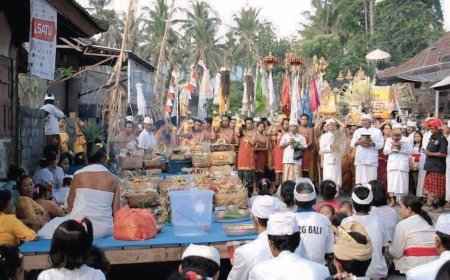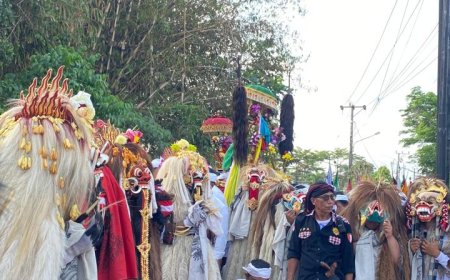Medaha Meteruna in Tenganan Dauh Tukad Village: An Ancient Ceremony Preserved in Karangasem
Tenganan Dauh Tukad Traditional Village, located in Manggis District, Karangasem Regency, Bali Province, is one of the Bali Aga villages, or original Balinese villages, renowned for preserving ancient traditions that remain alive to this day. One of the long-standing and highly respected traditions in this village is the Medaha and Meteruna ceremony, a series of processions that are part of the grand Usaba Sambah festival. This tradition is a form of local wisdom that not only strengthens the cultural identity of the Tenganan community but also serves as a unique cultural attraction in Bali
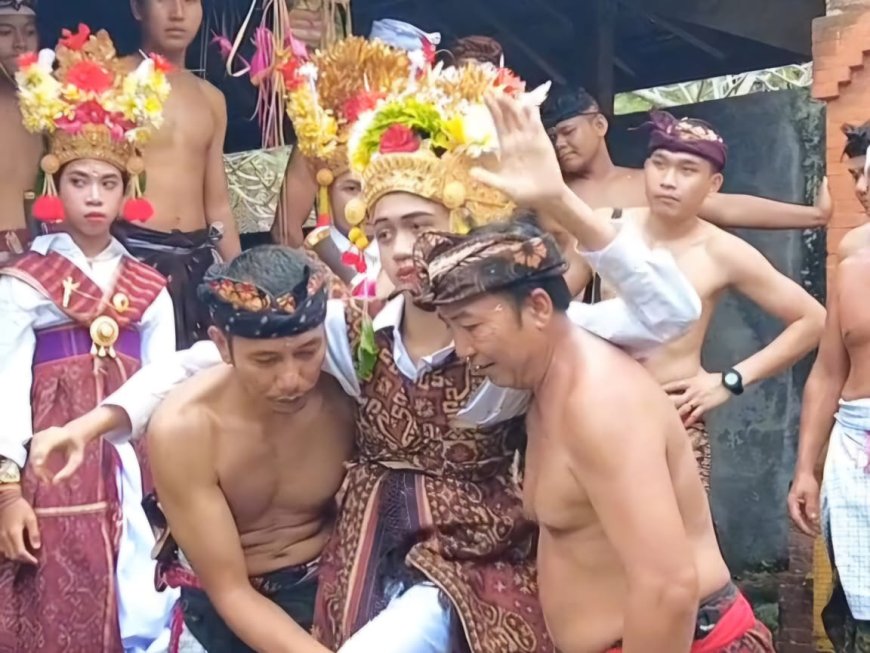
The Usaba Sambah ceremony is held annually during the fifth month of the traditional Tenganan Village calendar, which usually coincides with Sasih Karo in the Balinese calendar, around July. This ceremony is centered at Pura Balai Agung, located in Banjar Kaja and Banjar Kelod, the two main hamlets of Tenganan Dauh Tukad Village. Usaba Sambah holds deep spiritual significance for the village, with the primary aim of praying for safety, prosperity, and harmony for the entire community. Moreover, this ceremony serves as an important moment for preserving ancient traditions passed down through generations, particularly through the Medaha and Meteruna processions.
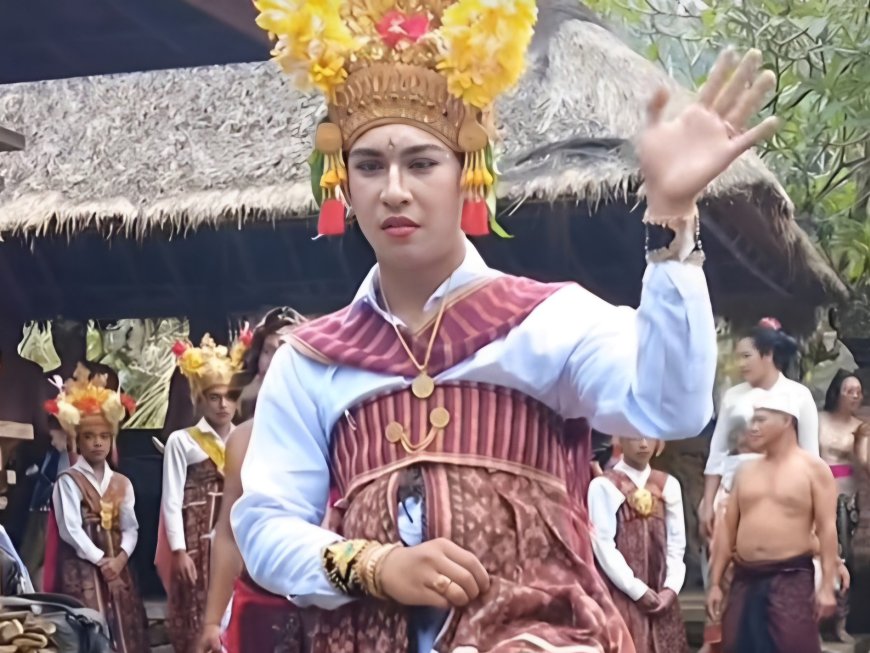
Meteruna Processions (Source: Private Collection)
Among the various events of Usaba Sambah, the Medaha and Meteruna processions are the most highly anticipated. These ceremonies share similarities with the Menek Kelih ceremonies held in other parts of Bali, which mark the transition of adolescents into adulthood. However, the traditions in Tenganan Dauh Tukad have unique characteristics that set them apart.
Meteruna is the procession for young boys, referred to as teruna anyar, who have reached puberty. After completing this procession, they are officially recognized as part of the village youth community and can join youth groups like sekaa teruna, which play an important role in the social and cultural life of the village. For young girls, this procession is known as Medaha. Like Meteruna, Medaha marks the transition of young girls into adulthood, where they are recognized as adult members of the community and begin to take on larger social roles within the village’s traditions.
Before the Medaha and Meteruna processions, the Usaba Sambah ceremony begins with the Nulak Damar ritual, an opening procession that marks the start of the entire series of Usaba Sambah activities. The Nulak Damar ceremony is performed as an offering to ancestors and the gods, symbolizing purification to ensure that the entire ceremony runs smoothly.
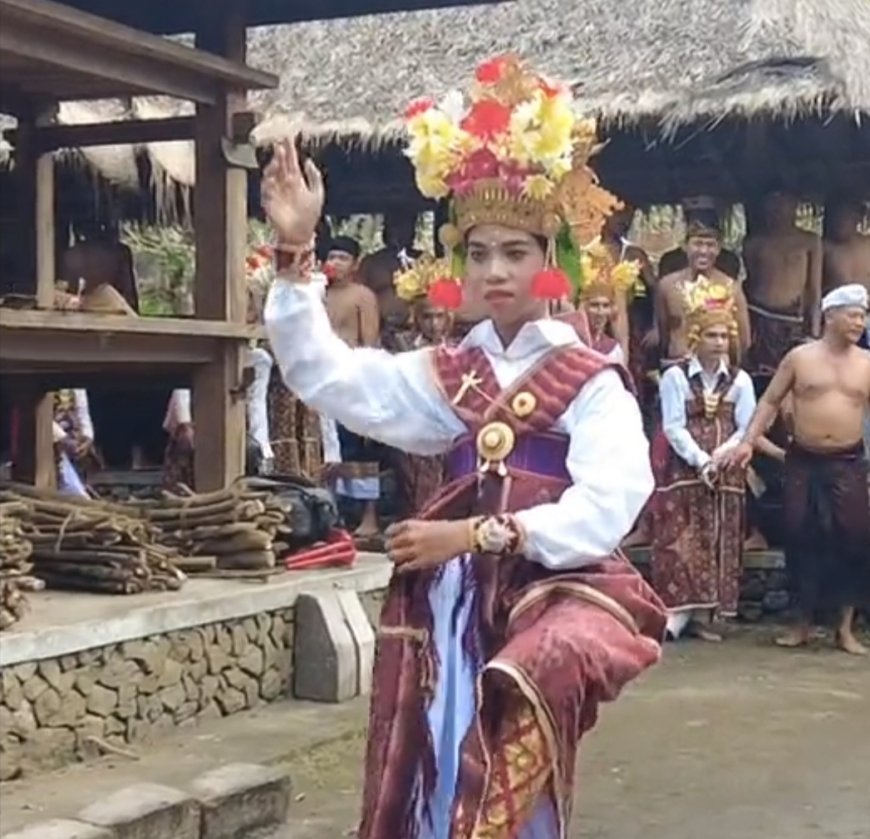
Meteruna Processions (Source: Private Collection)
The continuation of the Medaha and Meteruna ceremonies in Tenganan Dauh Tukad Village demonstrates the strong commitment of the local community to preserving and upholding their cultural heritage. Despite the constant development of the modern world, the people of Tenganan steadfastly adhere to these traditions, which distinguish them from other villages.
In addition, these ceremonies have become a unique cultural attraction. Many tourists, both local and international, are eager to witness the ceremonies firsthand and gain deeper insight into Bali’s rich cultural heritage, particularly in the Karangasem region.
The Medaha and Meteruna ceremonies in Tenganan Dauh Tukad Village are a living example of how ancient traditions can endure in the face of modernization. By maintaining deep cultural and spiritual values, the people of Tenganan not only preserve their identity but also impart the importance of cultural heritage preservation to the younger generation. These traditions are not merely ceremonial events but also a reflection of the social and spiritual life that has thrived for centuries in Karangasem, Bali. Through their commitment to these customs, the people of Tenganan continue to foster a sense of community and cultural pride, ensuring that their rich heritage is passed on and appreciated by future generations.

















































